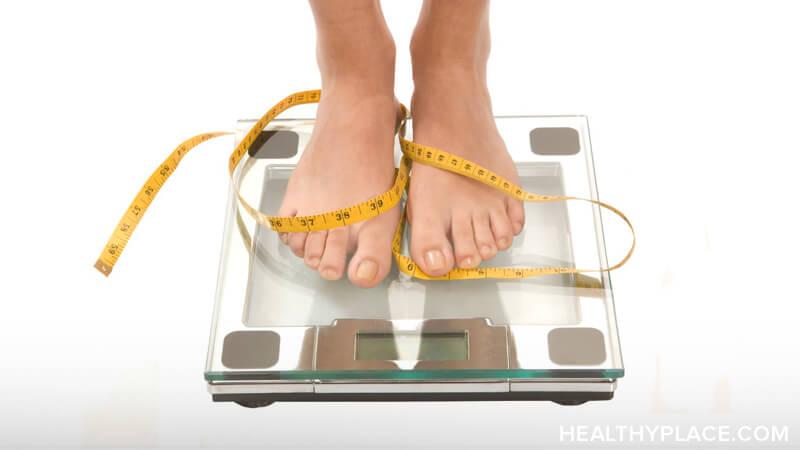Are Women Addicted to Disordered Eating?

Recently, I have noticed a disturbing diet-talk trend whenever I am with a group of women. Last week, for example, someone at my job said they eat less than 1000 calories while dieting. Another is preparing for her upcoming wedding by eliminating all carbohydrates. Constantly, I hear things like, "I'm trying to be good, so I'm not eating sugar," or "I was so bad last night because I ate ice cream."
Conversations like this strike me as problematic because I have been hospitalized several times for a life-threatening eating disorder. For many years, I was no different than my co-workers. Rather than passing judgment, I can't help but wonder where we, as women, got the idea that calorie restriction makes us "good." Are there any women out there who have a healthy relationship with food? Collectively, is calorie restriction our drug of choice?
My Disembodiment and Eating Disorder Addiction
My eating disorder took hold of my life in the early 2000s while I was in high school. During my senior year, I skipped class for the gym. I became so addicted to seeing the number on the scale drop that I barely graduated due to poor attendance. Weight loss compliments got me high. Fitting into a size two gave me a (false) sense of power. My awkward, emotional, directionless, queer, teenage self became hooked on disembodiment.
Now, after almost 20 years, all I see are red flags when women casually engage in and bond over body hatred. Mainstream media and patriarchal norms have brainwashed us into believing that thinness equals worthiness. From a young age, women learn that if our bodies aren't "perfect" according to the male gaze, we are unfit for marriage and will die alone.
Misogyny and sexual violence against women have been the norm for centuries. Women carry generations of trauma in their bodies. Our economic survival has been dependent upon pleasing our oppressors.1 It makes sense that we cling to calorie restriction, gaining temporary euphoria and false power, as we navigate a world that believes we're second-class citizens. It makes sense that disordered eating is our drug of choice.
The Power of Re-embodiment for Healing
Maybe my past with a life-threatening eating disorder gave me the superpower of seeing through the lies of diet culture. I wish all women understood that disordered eating resembles any other drug, numbing us when we feel powerless. My power as a woman has nothing to do with how I appear to men and everything to do with re-embodiment. My body is not bad or wrong. My body is my home, my temple, and it deserves endless nourishment, rest, and kindness.
Sources
-
Hoskin, M. N. (2020, July 27). The Ugly Reality Of Violent Misogyny In America Is Systemic, Endemic, And Normalized. Forbes. https://www.forbes.com/sites/maiahoskin/2020/07/27/the-ugly-reality-of-violent-misogyny-in-america-is-systemic-endemic-and-normalized/?sh=3507716c7d6d
-
Apple Podcasts, & Doyle, G. (2023, March 8). 5 Ways to Be More Present: Indigenous Wisdom from Kaitlin Curtice. Apple Podcasts. https://podcasts.apple.com/us/podcast/5-ways-to-be-more-present-indigenous-wisdom-from-kaitlin/id1564530722?i=1000603395823
APA Reference
Cronkright, K.
(2023, March 20). Are Women Addicted to Disordered Eating?, HealthyPlace. Retrieved
on 2025, December 7 from https://www.healthyplace.com/blogs/debunkingaddiction/2023/3/are-women-addicted-to-disordered-eating
Author: Kelsi Cronkright
Hearing you talk about food after all you've been through... using it to help others... Ahhhhh. SoberKelsi. You're amazing. I'm so proud of you
